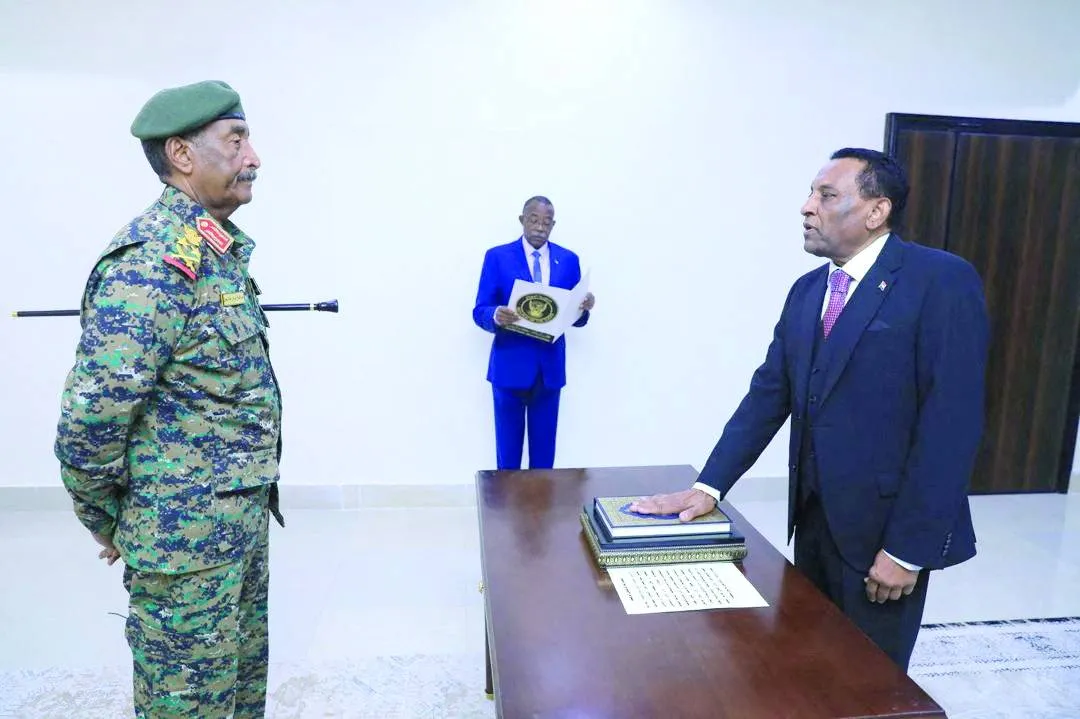Sudans Prime Minister Vows to Eliminate Rebellion

Sudan’s newly appointed Prime Minister, Kamel Idris, pledged to “completely eliminate the rebellion and all forms of rebel militias, and safeguard Sudan’s national security,” while announcing the dissolution of the current government.
On Sunday, Idris informed ministers in a meeting of the government’s dissolution and assigned the secretaries-general and deputy ministers to manage affairs until a new government is formed.
He urged countries supporting the Rapid Support Forces (RSF) to stop, calling for what he termed a “comprehensive national healing campaign.” He said he would adopt an inclusive intra-Sudanese dialogue that excludes no one and rejects regionalism and racism “after eliminating the rebellion.”
In his first address to the Sudanese people following his swearing-in on Saturday, Idris said his priorities begin with national security, restoring the state’s prestige, completely ending the ongoing rebellion, and dismantling the phenomenon of rebel militias. He promised to establish a rule of law that includes the prosecution, judiciary, constitutional court, maintaining security, and managing the transitional period and the executive apparatus efficiently and successfully to achieve security and stability in the country.
Idris added that he would work on rebuilding Sudan’s foreign relations, especially with neighboring countries and the wider Arab and African regions, as well as with all countries globally.
The Sovereignty Council chairman and army chief, General Abdel Fattah al-Burhan, issued a decree on May 19 appointing Idris as prime minister, filling a position left vacant since the resignation of former Prime Minister Abdalla Hamdok.
Hamdok resigned following the October 25, 2021 coup led by Burhan and his former deputy Mohamed Hamdan Dagalo, known as “Hemedti,” against the civilian government that was formed after the popular uprising which overthrew former President Omar al-Bashir in April 2019. This government was often referred to as the “revolution government.”
Idris, who took his oath on Saturday, previously served as Director-General of the World Intellectual Property Organization (WIPO) and Secretary-General of the International Union for the Protection of New Varieties of Plants. He also ran against former President Omar al-Bashir in the 2010 presidential elections, receiving around 77,000 votes out of over 10 million voters.
Meanwhile, on Sunday, three drones struck locations affiliated with the Rapid Support Forces in western Sudan, according to eyewitnesses.
Residents reported that the airstrikes hit the center of Nyala, the capital of South Darfur state, targeting a hotel, an RSF medical unit, and RSF positions on the city’s eastern outskirts.
aawsat.com